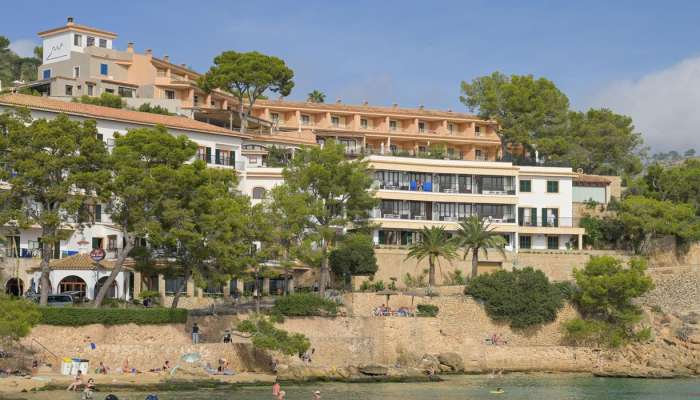
Barcelona: In the hunt for illegal vacation rentals, the authorities on the Spanish island of Mallorcaare getting serious. Within the framework of an "action plan" endowed with €700,000 ($767,000), the number of inspectors hunting out illegal flats has increased — and they will not avoid resorting to trickery to catch out law-breakers.
Posing as tourists, inspectors have been given credit cards and can book suspicious properties online to snatch culprits. They're also checking properties on the evenings and weekends. Previously, some landlords were only posting ads for their properties after inspectors' working hours. The island's authorities say they are determined to sweep the island clean of illegal apartment rentals, says a representative of the tourism department, Andreu Serra.
Vacation rentals are an extremely controversial issue on Mallorca, just as they are in many other sought-after vacation destinations like Barcelonaand Lisbon, Portugal. The effects on the housing market are extreme. While the supply of vacation rentals on internet platforms such as Airbnband Vrbo (formerly HomeAway) is growing steadily, prices for normal rental apartments are skyrocketing, making it difficult for locals to find an affordable place to live. In Mallorca's capital Palma, for example, it's challenging to find a rental for less than €900 per month ($985). Such an amount is nearly unaffordable, considering the average salary on Mallorca is €1600 ($1752) before taxes are taken out.
Tourists are part of everyday life
In view of the worsening housing situation, the administration of the city of Palma declared vacation rentals in apartment buildings illegal in 2018. As a result, there should be very few offers listed online at the moment, since only detached apartment buildings may be rented out. The reality, however, is the opposite. Tourists wheeling suitcases around the city is part of everyday life, even in fully residential areas.
When the Balearic government imposed a hefty fine on Airbnb in 2018, the company appealed, and a court declared the fine unlawful. The judge ruled that the platform was merely acting as an intermediary. Naturally, the island's authorities hope the stricter controls will help resolve the issue.
In Portugal, too, the government is trying to address the issue after repeated protests by citizens fed up with the high prices on the housing market. New measures have been introduced that concern the short-term vacation rental sector. No more new rental licenses are to be issued, at least in major cities. The issue is also on the agenda in Italy. Tourism Minister Daniela Santanche recently criticised the "Wild West methods" on the vacation rental market in an interview with local media. "We need real regulation," he demanded.
More transparency through new EU regulations
In the meantime, the need for more regulation has also been recognised at the EU level. Last November, the European Commission adopted a proposal on regulations to enhance transparency in the short-term accommodation rentals market. Then, on March 2, the EU Competitiveness Ministers agreed on a plan to regulate how data is collected and shared for short-term vacation rentals. The new plan, which will likely be put into place next year, will require all hosts in the 27-country block to file for a registration number which they will have to display. Platforms like booking.com and Airbnb will be required to check the numbers and de-list hosts who don't comply.
The EU Commission expects this to result in a lower number of illegal short-term holiday rentals and make it easier to for authorities to assess and mitigate the negative impact of such accommodations.
Applause in Barcelona
Gerry Woop, who serves as state secretary for Europe in the state of Berlin and as a member on the EU's Committee of the Regions in Brussels, largely agrees with plans. The proposal seems "workable," he says. "We are confident it will allow us to control and sanction rentals more effectively." A 2019 survey showed that 26,500 residential units were offered via Airbnb alone in Berlin, he said. "The number has certainly increased since then," Woop said, adding that this further exacerbates the situation on the housing market. Strict rules have applied to vacation rentals in Berlin for some time. However, monitoring whether the rules are being followed is difficult. "We have no sanctioning options so far," says Woop.
The city of Barcelona is also setting its hopes on the new regulations. Barcelona's administration has been trying in vain for years to get illegal vacation rentals under control. The regulation is a first step in the right direction, says Janet Sanz, the responsible department head in the Catalan capital's city hall. However, the city hopes improvements will be made so that in the future platforms such as Airbnb and Booking.com can be held more accountable so they can take action against illegal offers themselves. The same wish is held by the Balearic Tourism Minister Iago Negueruela, who recently made a special appearance in Brussels for this purpose. "I can't understand how platforms such as Airbnb still publish apartment ads that are illegal," he says.
At least the tighter controls on Mallorca have now brought initial success. Over 300 vacation properties were inspected in the first three months of the year, according to the island's council and in 45 cases, a process to initiate fines was initiated. And the fines threatened are steep, ranging from €40,000 ($43,848) to €400,000 ($438,480).